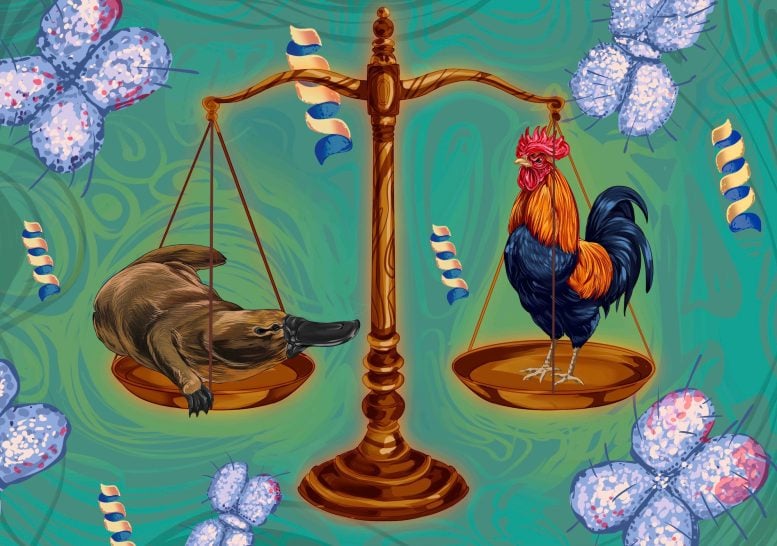Researchers at UNSW Sydney have discovered novel mechanisms of sex chromosome dosage compensation in platypus and chicken, challenging previous assumptions and providing new insights into genetic regulation across species.
A new study reveals that platypuses and chickens balance protein levels between sexes through a unique dosage compensation mechanism, different from humans, challenging long-standing genetic assumptions and enhancing our understanding of genetic evolution and regulation.
Researchers at UNSW Sydney have uncovered fundamental differences in biological processes between males and females by examining the unique and diverse sex chromosome systems of the platypus and the chicken.
The findings, published in Proceedings of the National Academy of Sciences (PNAS), are a surprise in the field of genetics. The discoveries will help build a better understanding of how sex chromosomes evolved, how our bodies function—and they could lead to new discoveries in biology.
“Mammals, such as humans, have females with two X chromosomes and males with one X chromosome and one Y chromosome, which creates an imbalance between the sexes,” says lead author Dr Nicholas Lister from UNSW’s School of Biotechnology and Biomolecular Sciences. “This imbalance is corrected by a process called sex chromosome dosage compensation.”
Scientists have long known that animals have solutions to balance sex chromosome differences and achieve ‘normal’ function.
Dr Lister says: “In female mammals, such as humans and mice, XX females and XY males have different numbers of the X chromosome. To balance this difference, one of the X chromosomes in females is typically silenced. Silencing one X chromosome in females equalizes the gene products on the sex chromosomes. This prevents females from producing double the number of proteins from the X compared to males.”
Balancing the scales
Every cell in our bodies uses proteins to perform specific functions.
“They are translated from mRNA, which carry the instructions for cells to make proteins,” the study’s research lead, Associate Professor Paul Waters, also from UNSW’s School of Biotechnology and Biomolecular Sciences, says. “Being male or female affects mRNA levels of X chromosome genes, which we would then expect to affect protein production.”

The platypus and chicken have vastly different sex chromosome systems to humans—which can give us valuable insights into our own bodies work. Credit: Shafagh Waters and Lisa Melisa
But A/Prof. Waters says this study demonstrates—for the first time—that a balance of proteins occurs between the sexes, even when mRNA levels aren’t balanced.
“The findings suggest that dosage compensation is a crucial process in DOI: 10.1073/pnas.2322360121




















Discussion about this post